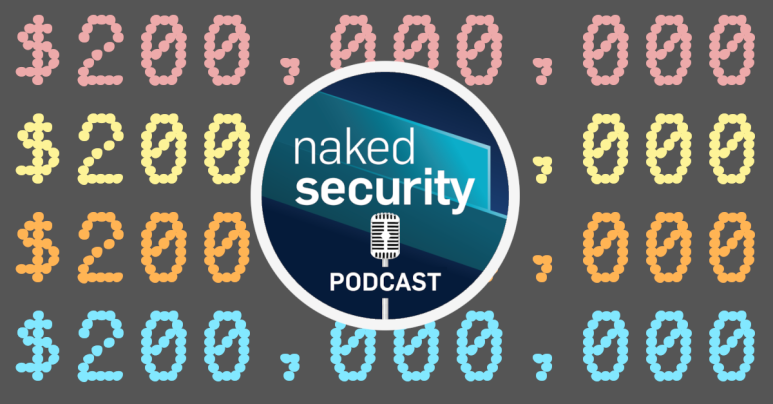This sort of crypto (graphy), and the other sort of crypto (currency!) [Audio + Text] – Naked Security
With Doug Aamoth and Paul Ducklin.
DOUG. A critical Samba bug, yet another crypto theft, and Happy SysAdmin Day.
All that and more, on the Naked Security podcast.
[MUSICAL MODEM]
Welcome to the podcast, everybody.
I am Doug Aamoth.
With me, as always, is Paul Ducklin… Paul, how do you do today?
DUCK. Excellent, thank you, Douglas.
DOUG. We like to start the show with some tech history.
And this week, Paul, we’re going way back to 1858!
This week in 1858, the first transatlantic telegraph cable was completed.
It was spearheaded by American merchant Cyrus Westfield, and the cable ran from Trinity Bay, Newfoundland, to Valencia, Ireland, some 2000 miles across, and more than 2 miles deep.
This would be the fifth attempt, and unfortunately, the cable only worked for about a month.
But it did function long enough for then President James Buchanan and Queen Victoria to exchange pleasantries.
DUCK. Yes, I believe that it was, how can I put it… faint. [LAUGHTER]
1858!
What hath God wrought?, Doug! [WORDS SENT IN FIRST EVER TELEGRAPH MESSAGE]
DOUG. [LAUGHS] Speaking of things that have been wrought, there is a critical Samba bug that has since been patched.
I’m not an expert by any means, but this bug would let anyone become a Domain Admin… that sounds bad.
DUCK. Well, it sounds bad, Doug, mainly for the reason that it *is* rather bad!
DOUG. There you go!
DUCK. Samba… just to be clear, before we start, let’s go through the versions you want.
If you’re on the 4.16 flavour, you need 4.16.4 or later; if you’re on 4.15, you need 4.15.9 or later; and if you’re on 4.14, you need 4.14.14 or later.
Those bug fixes, in total, patched six different bugs that were considered serious enough to get CVE numbers – official designators.
The one that stood out is CVE-2022-32744.
And the title of the bug says it all: Samba Active Directory users can forge password change requests for any user.
DOUG. Yes, that sounds bad.
DUCK. So, as the full bug report in the security advisory, the change log says, in rather orotund fashion:
“A user could change the password of the administrator account and gain total control over the domain. Full loss of…



